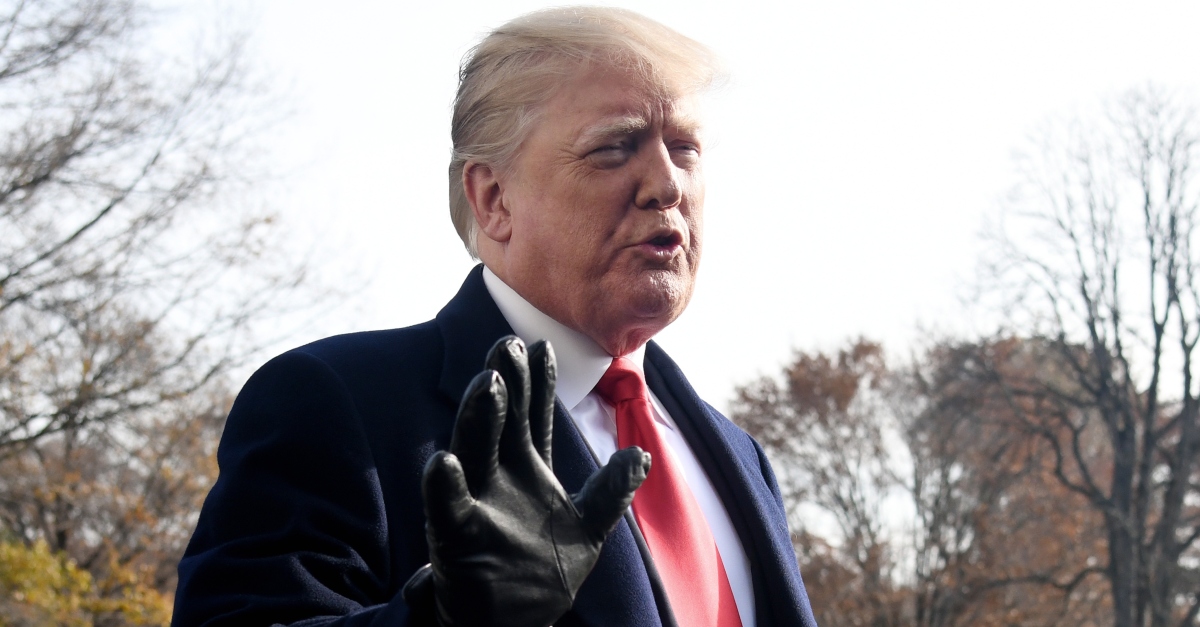
A former federal prosecutor said pointblank Thursday that President Donald Trump‘s actions–as outlined in the Mueller Report–broke the law.
“That’s obstruction of justice,” said legal analyst Gene Rossi in an appearance on the Law&Crime Network shortly after the release of the redacted Mueller Report. “I charged that. I tried that. I indicted a state prosecutor for doing the same thing that allegedly the President of the United States did.”
That’s his response to Mueller’s summary of Trump’s actions:
President Trump reacted negatively to the Special Counsel’s appointment. He told advisors that it was the end of his presidency, sought to have Attorney General Jefferson (Jeff) Sessions unrecuse from the Russia investigation and to have the Special Counsel removed, and engaged in efforts to curtail the Special Counsel’s investigation and prevent the disclosure of evidence to it, including through public and private contact with potential witnesses.
Mueller’s analysis of the legality of Trump’s actions also mentioned that the president’s constitutional authority gave him some leverage.
A factual analysis of that conduct would have to take into account both that the President’s acts were facially lawful and that his position as head of the Executive Branch provides him with unique and powerful means of influencing official proceedings, subordinate officers, and potential witness.
Rossi remarked wryly on the “facially lawful” detail.
“Richard Nixon–God rest his soul–is probably smiling right now because what he did was much less profound than what the President of the United States is openly doing, and we now know that they did it privately,” he said.
Politics aside, the question is whether Trump’s alleged actions could result in a successful obstruction of justice case. Law&Crime took a look at the kind of incidents mentioned in the Mueller Report.
This situation has to do a lot of what specifically was on the president’s mind. Mueller’s team drew a distinction between something that would constitute a corrupt motive (eg. stopping an investigation into his family members “to protect against personal embarrassment or legal liability”) or something that wasn’t corrupt (eg. actions serving a political or policy interest, such as curtailing a law enforcement investigation “to avoid international friction”).
Mueller’s team declined to make a hard and firm decision on the matter, suggesting they lacked the “confidence” to clear Trump of wrongdoing. They said their report did not “exonerate him.” They also cited the Office of Legal Counsel’s finding that sitting president’s cannot be prosecuted.
A hypothetical criminal case could be tricky.
Law&Crime analyst and former Morris County, New Jersey Prosecutor Bob Bianchi told us the Mueller Report was a success for Trump in the strictest sense of the word. It’s harder to prove corrupt intent if there’s no underlying crime, he said. In that case, the underlying crime would’ve been collusion, but Mueller’s team said they didn’t establish any.
Bianchi also pointed out that Trump’s constitutional powers give him cover. For comparison’s sake, he brought up a hypothetical: What if Democratic President Barack Obama was investigated by his attorney general Eric Holder for something Obama knew to be false. Obama would’ve been in his rights to fire Holder if he believed this probe interfered with his job as president.
“You can’t show corrupt intent if you can show he believed he was doing it for the right reasons,” Bianchi said.
It’s fair to say that Trump acted much aggrieved during this investigation.
In that lens, a criminal prosecution might be hard. Impeachment is another matter. Trump’s alleged actions–including dangling pardons, and trying to get White House Counsel Don McGahn to fire Mueller–directly concerns the power of office, Bianchi said. Congress could impeach over this, he said. His alleged actions would qualify as crimes and misdemeanors, and the standard of proof would be much lower than the one Mueller dealt with, he said.
Then again, “would” and “could” are different matters. Democrats control the House of Representatives, where impeachment only requires a majority. Removal requires a two-thirds supermajority in the Senate, however. Republicans run things over there, and would likely shoot down any efforts to kick Trump out of office.
Bianchi argued the blowback would hurt Democrats in elections.
“It would be insane to do that, politically,” he said.
[Image via Olivier Douliery-Pool/Getty Images]
Have a tip we should know? [email protected]